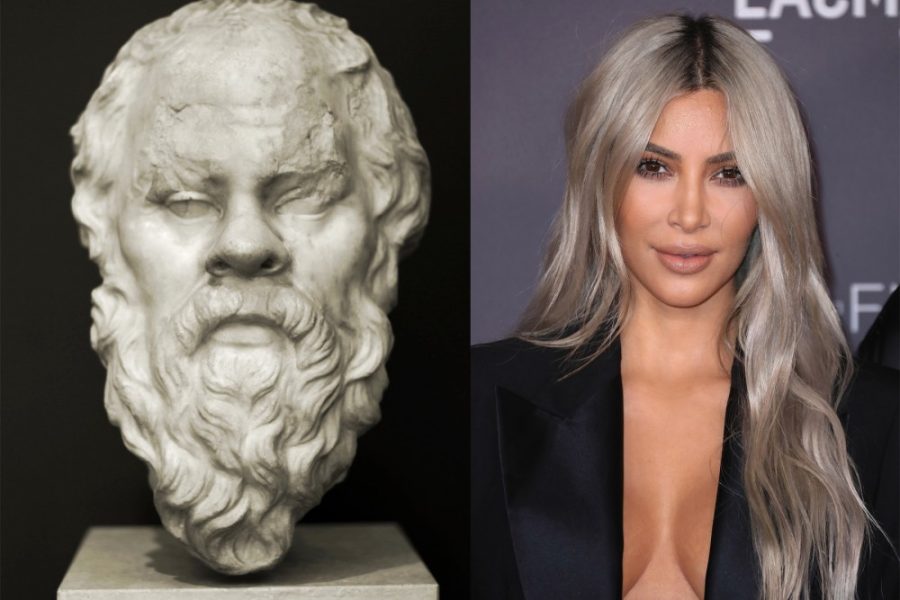It is a tragedy that we have allowed our vanity to corrupt us. The modern individual’s clockwork self-aggrandizement is regularly practiced and easily accessible. Intentionally on display, our collective vapidity has grown into a grotesque cultural scourge which itself is not actively malicious, but indicates an unfortunate trend in the way we conduct ourselves.
This is not an article specifically trained on the “evils of social networks”, although this online activity has become a useful vessel to distribute our narcissism. The focus of this article is not necessarily to demonize American broadcasting networks. This article is not written to form uninformed conclusions about the state of our new culture and does not suggest that we are without hope. What I am attempting to achieve is a meditation that enlists classical thought to examine our societal habits and how they seep into not only our interpersonal behavior, but our dignity, our community, and our politics.
Plato’s “Republic” mentions a ruling class of philosopher queens and kings. These individuals, identified as the ruling class, only qualify for the position if they maintain a certain level of emotional and intellectual confidence. This idea can be observed in Greek, Roman, American and other republics both antiquated and modern. In these instances, the order of executive succession is not based in blood but rather perceived ability and experience. Naturally, each society practiced a distinct model of election, nonetheless Plato’s process is reflected.
Why would I discuss classical philosophy of government and the vanity in modern media? Recently these two apparently distant ideas have converged. Changing ideologies due to an increasingly globalized world, a more diverse West, long Middle Eastern wars and the internet’s exponential march have brought about a new “age of opinion.”
The new means of online communication draws parallels to other great advances in human connectivity; the advent of written language, the printing press, expedited transportation by means of ships, the automobile and fixed-wing aircraft, mass media and the internet. I attempt to refrain from historical arrogance when discussing matters of perspective such as which of these advances was most profound. However, never have so many people been given a voice. Never has information and misinformation been so accessible.
RELATED: Embrace sadness; the merits of melancholy
The election of 2016 is an instance where misguided or maliciously false information became a tool to inflict ideological chaos. We like to assume that those who are primarily informed via social media are savvy enough to cut through what is reliable and what is clearly sensational. The unfortunate truth is they often aren’t. It is easy to allow yourself to be seduced by the stories you would like to hear. Conspiracies and scandals are attractive, but inherently vain. This is vanity invading and successfully hijacking our collective rationality.
When a Kardashian extends a tweet, which is intended to be — yet barely resembles — something amounting to political input, millions read and find it acceptable. This is vanity replacing reason. Kardashians may say what they please, it may even be sensible. The worry is not exclusively with Kardashians or even celebrities alone for that matter. The worry is that vanity and emotion will displace wisdom, experience and rational thought as the primary means of political decision-making. Elections, political movements, and even military action are susceptible to what Aristotle would define as “the deviant form of rule by many rulers.” Democracy in its classical sense would look very different and be consistent with anarchy rather than a modern democratic society.
<blockquote class=”twitter-tweet” data-lang=”en”><p lang=”en” dir=”ltr”>They don’t have power to watch the news!!! Please stop tweeting & golfing while people are dying! Please step up & help! <a href=”https://t.co/AP8PnapWaO”>https://t.co/AP8PnapWaO</a></p>— Kim Kardashian West (@KimKardashian) <a href=”https://twitter.com/KimKardashian/status/914235259620749312?ref_src=twsrc%5Etfw”>September 30, 2017</a></blockquote>
<script async src=”https://platform.twitter.com/widgets.js” charset=”utf-8″></script>
To digress, the fear ought to be that rampant misinformation effectively distributed by catalysts of fallacy from ultra-ideological “news” outlets or common tabloids is to our own detriment. Should entertainment and news continue to merge, we are in for a grotesque and miserable surprise. Rule by an uninformed populous would be the exact majority tyranny that our classical and enlightenment-age fore-bearers warned us of. Do them a favor, stay properly updated, and vote responsibly.
Have the philosopher kings forsaken us? Have we forsaken them? Will we continue down this path of vapid contentedness? Satisfied with the immediate. Satisfied with ourselves and our egos. Will we relinquish our humility, our sense of justice, of respect in the name of pride, of dedication to ourselves? Will we neglect our potential philosopher kings and elect candidates with large personalities void of valuable qualities? Will we wake up? Can we count on our elected officials to embody the best of our culture? Honesty, reason, justice, humility, competence. Can they count on us to understand our role as citizens and keep them in check?
I believe in the integrity of this nation. I believe we can.
Follow Daily Wildcat on Twitter









